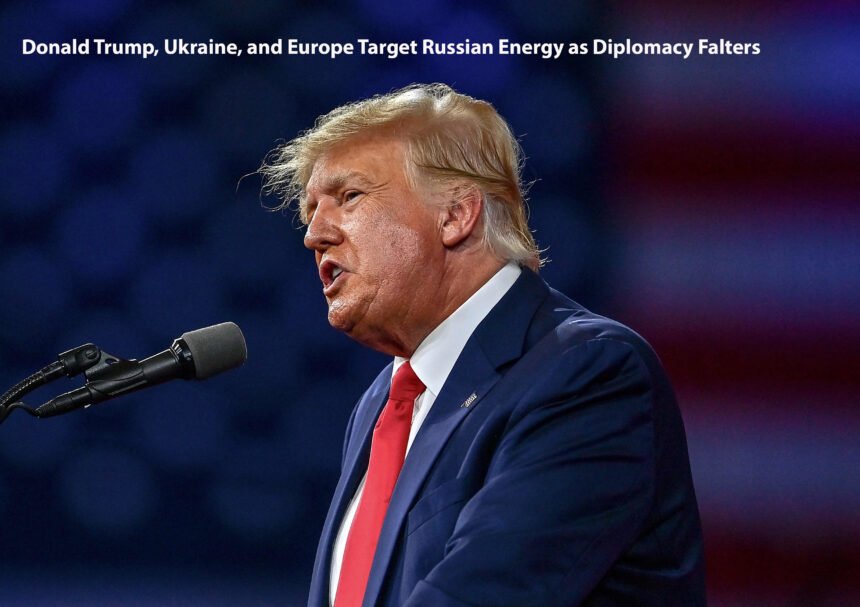Donald Trump is ramping up pressure on Russia’s energy sector as his diplomatic efforts to end the war in Ukraine face mounting setbacks. Across Europe, a major push is underway to sever Moscow’s financial lifeline by targeting oil and gas exports. The strategy reflects a shift from negotiation to economic warfare. According to recent reports, the European Union is preparing a sweeping sanctions package aimed at Russian energy shipments.
At the same time, Ukraine asserts that its military campaign is gaining traction by striking consecutive hits on Russian fuel infrastructure. Since August, Kyiv has targeted dozens of refineries and gas processing plants deep inside Russian territory, disrupting critical supplies.
Diplomacy Stalls, Front Lines Shift
While the energy offensive unfolds, diplomatic efforts appear to stall. Trump’s attempt at brokering peace between Russia and Ukraine has yielded little progress. He previously floated a meeting with Vladimir Putin and proposed a cease-fire along current battle lines, a move that Kyiv rejected outright.
Ukraine, meanwhile, remains confident about its long-term prospects despite losing fragments of territory. In a visit to Washington, Ukrainian President Volodymyr Zelenskyy declared that Russia’s army was weak and pressed Trump to intensify pressure on Moscow.
Turning Energy Into a Battlefield
The logic behind the energy sanctions is clear: by choking Russia’s capacity to sell oil and gas and by disrupting its refining capabilities, Moscow’s resources for sustaining its war machine would be degraded. Ukraine has reportedly struck energy targets 58 times since August, compared with just three in June and July.
One notable incident involved a gas processing complex in Orenburg, Russia, reportedly shutting down after a Ukrainian drone attack forced the shutdown of its gas supplies from Kazakhstan. The Novokuibyshevsk oil refinery was also targeted. These attacks signal Kyiv’s willingness to launch a campaign beyond its borders, using drones and long-range missiles to launch attacks on Russia’s energy sector.
Europe’s Stake and the Transatlantic Gamble
Europe’s involvement has become critical. Dependency on Russian energy has long been a vulnerability for the EU, but the bloc now faces a reckoning: can it afford to cut ties and shoulder the energy risk? The sanctions proposal aims to end Russian oil and gas imports by 2028. Donald Trump has urged European allies to stop buying Russian fuel, arguing that continued purchases directly fund the war in Ukraine. His rhetoric highlights growing frustration with Europe’s pace and commitment.
Risks, Trade-Offs, and the Bigger Picture
There are considerable risks. First, Russia may retaliate by escalating energy exports to Asia. Or by weaponizing its existing contracts through price hikes and supply manipulation. Second, the diplomatic front may suffer. With talks stalling, Ukraine may push for more aggressive outcomes, and Europe may be drawn into deeper conflict.
Third, domestic pain in Europe could rise as energy costs increase and winters grow harsher. Yet for Ukraine and allies, this strategy might be among the few viable routes when traditional diplomacy falters. If successful, it could force Russia to reconsider its calculus. But if it fails, momentum might shift making future negotiations even harder.












